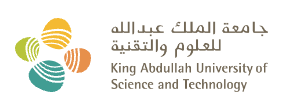World’s oldest domesticated wheat genome sequenced

The study, published in Nature, will accelerate wheat improvement, including higher nutrition and disease resistance.
Thuwal, Saudia Arabia, 2nd August 2023 / Sciad Newswire / A team of scientists from King Abdullah University of Science and Technology (KAUST) and six other countries have sequenced the genome of einkorn, the world’s first domesticated wheat species. The new genomic information provides a reference for improving bread wheat, including higher nutrition and disease resistance. The knowledge gained can be applied to improve wheat cultivars in the face of climate change and a growing population.
Einkorn was domesticated around 10,000 years ago in the Fertile Crescent, most likely in Southeastern Turkey. The long history of human intervention in cultivating and selecting this wheat species makes einkorn a valuable genetic resource for wheat breeding.
“Over thousands of years, nature and people have selected the best genes for this species,” said KAUST Professor Simon Krattinger, a co-author of the study. “Sequencing the einkorn genome will help pointing us to which genes have agriculturally important effects.”
The new study, published in the journal Nature, provides the most comprehensive version of the einkorn genome yet. By using long-read sequencing to capture the entire 5.2 gigabases of the genome, the study revealed details about regions that could not be scrutinized previously, including critical elements for the plant’s cell division and growth, such as the centromeres.
Further study indicated that genetic material from various wild einkorn lineages entered the genome of domesticated einkorn, allowing the latter to adapt when it was introduced to climates outside the Fertile Crescent. The sequencing analysis also gave insight on how genetic material from einkorn entered the bread wheat genome, reaffirming the einkorn genome sequence as a resource for wheat breeding.
The new information will accelerate best practices to improve the agricultural value of einkorn and other wheat species. Furthermore, it will help scientists and farmers identify genes that are important for nutrition, disease resistance, and other traits that are important for wheat production. The study also provides new insights into the evolution of wheat, which will be helpful for developing new wheat varieties that are better suited to the challenges of a changing climate.
“The results of this study will really accelerate the improvement of wheat species,” said KAUST Professor Jesse Poland, a co-author of the study. “Putting together the entire genome is a great scientific accomplishment, but the applied value of these genomes is immense as our interest is to develop improved wheat varieties to increase production and food security, something all nations will need to consider as the global population grows and the climate changes.”
Along with the scientific advancement gained from this study, Dr. Hanin Ahmed earned her doctorate for this research and is now working at the University of Toulouse, France through an Ibn Rushd fellowship. These fellowships are given by KAUST to exceptional young scientists across the country and can be used anywhere in the world to conduct scientific research.
ENDS
For Further Information
Sciad Communications, Media Relations
Amy Thomas
E: Kaust@sciad.com
T: +44 (0)20 3405 7892
Notes for Editors
About KAUST
Established in 2009, King Abdullah University of Science and Technology (KAUST) is a graduate research university devoted to finding solutions for some of the most pressing scientific and technological challenges in the world as well as Saudi Arabia in the areas of food and health, water, energy, environment and the digital domain. KAUST is a curiosity-driven, interdisciplinary problem-solving environment, with state-of-the-art labs, distinguished faculty and talented students.
KAUST brings together the best minds from around the world to advance research. More than 120 different nationalities live, work and study on campus. KAUST is also a catalyst for innovation, economic development and social prosperity, with research resulting in novel patents and products, enterprising startups, regional and global initiatives, and collaboration with other academic institutions, industries and Saudi agencies.
For additional information, visit www.kaust.edu.sa.

KAUST
King Abdullah University of Science and Technology (KAUST) is a graduate research university devoted to finding solutions for some of the most pressing scientific and technological challenges in the world as well as Saudi Arabia in the areas of food and health, water, energy, environment and the digital domain. KAUST is a curiosity-driven, interdisciplinary problem-solving environment, with state-of-the-art labs, distinguished faculty and talented students.
Got an innovation you need bringing to life?
We’d love to hear from you! Head to our contact page to start a conversation.
